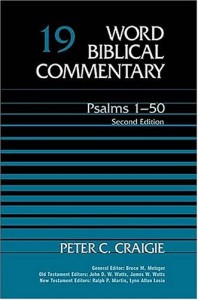The Waiting Time – Psalm 25
“To you, O Lord, I lift up my soul. O my God, in you I trust; do not let me be put to shame; do not let my enemies exult over me. Do not let those who wait for you be put to shame; let them be ashamed who are wantonly treacherous.” (Psalms 25:1-3 NRSV)
 Several years ago, I began thinking of Psalm 25 as a Psalm for the waiting times. There are lots of Psalms — and other passages of Scripture — like this, but I hadn’t always seen Psalm 25 this way.
Several years ago, I began thinking of Psalm 25 as a Psalm for the waiting times. There are lots of Psalms — and other passages of Scripture — like this, but I hadn’t always seen Psalm 25 this way.
Here is what I mean.
Many times in the Hebrew scriptures we are exhorted to “wait on the LORD” — and we are told the advantages of such an approach to life. “Wait for the Lord; be strong, and let your heart take courage; wait for the Lord!” (Psalms 27:14 NRSV) “For the wicked shall be cut off, but those who wait for the Lord shall inherit the land.” (Psalms 37:9 NRSV) “I wait for the Lord, my soul waits, and in his word I hope….” (Psalms 130:5 NRSV).
Psalms 25:1, 2:
לְדָוִד אֵלֶיךָ יְהוָה נַפְשִׁי אֶשָּׂא
אֱלֹהַי° בְּךָ בָטַחְתִּי אַל־אֵבוֹשָׁה אַל־יַעַלְצוּ אֹיְבַי לִי
In his Commentary on Psalms 1-50 (1983: Word Biblical Commentary), Peter C. Craigie translates these opening two verses this way:
“Of David.
For you I have waited, O Lord.
I will lift up my soul to my God.
In you I have trusted — let me not be put to shame;
Let not my enemies exult over me.”
 This translation assumes a conjectural reading in which Craigie has supplied a form of the verb קָוָה (qāwāh, v. to hope in; to hope for, wait for, look for) which also appears in verse 3 and verse 21. The verb is supplied to give better sense to the sentence as it stands. (See Craigie’s commentary, page 216.)
This translation assumes a conjectural reading in which Craigie has supplied a form of the verb קָוָה (qāwāh, v. to hope in; to hope for, wait for, look for) which also appears in verse 3 and verse 21. The verb is supplied to give better sense to the sentence as it stands. (See Craigie’s commentary, page 216.)
The benefit of this translation for me was that — when I first encountered it many years ago — it brought out the emphasis on waiting and hoping. I might otherwise have missed it. The Psalm writer alternates between this theme of waiting, and his repeated expressions of confidence in God.
And, the point is important one for us. We spend quite a bit of our lives in the waiting times. There are those times between our prayers, our petitions and their answers. There are hopes and dreams within us that remain unfulfilled. And, we wait for answers, re-affirming our confidence in God.
Yes, Psalm 25 is an expression of trust. But, it is raised in the context of unfulfilled hopes and dreams. It can be frustrating to live in the waiting time. And, our contemporary culture has a hard time understanding and accepting this as well. Do something, we hear — do something now!
But, it seems that the Old Testament writers had learned to live in this tension. They remembered and re-copied prophecies which remained unfulfilled, they held onto Psalms that described a king better than any they ever really knew. It is remarkable to me what difficult and even painful memories the Israelites held onto as the record of their faith journey. They were a people with a clear sense of their own historical failures. They were a people who knew they were awaiting something greater: a greater day than they had ever known, a greater king than they had ever known. They held onto that sense of being a people who were awaiting more.
 To wait on the Lord is to keep hanging on. We hang on to hope in the midst of contradiction. Yes, it is frustrating to be living in the waiting time. But, these can also be some of the most spiritually significant times of our lives. The frustration of waiting is often a creative frustration. We don’t give up on our expectations or hopes or dreams or prayers. We look in expectation toward God. “In You I have trusted….”
To wait on the Lord is to keep hanging on. We hang on to hope in the midst of contradiction. Yes, it is frustrating to be living in the waiting time. But, these can also be some of the most spiritually significant times of our lives. The frustration of waiting is often a creative frustration. We don’t give up on our expectations or hopes or dreams or prayers. We look in expectation toward God. “In You I have trusted….”
There is great theological significance to the waiting times of our lives: our faith tells us that all of life is a waiting time. The vision of God’s Reign of peace and salvation and justice and wholeness is larger and greater than anything that we experience in this life. When we pray those words: “thy Kingdom come, thy will be done, on earth as it is in Heaven” we are asking and longing for a world better than the one we have lived in up to now. We acknowledge our frustration with the way the world is — and place our hope in God — for what yet can be.
For the Christian, all of life is a waiting time. We live in a between-time. We are not satisfied with the world the way it is. The promises of God point us to the future. Our desire is to see more and more of God’s Will done on earth — and in us! So, we pray for our world, our country, our community, our church: “Lord, your will be done. We don’t see that right now. But, we desire to see it more and more.” We still believe in the worth of people. We still believe in peace. We still believe in justice. The promises of God always point us to the horizon. The God who has been faithful in the past — the God who revealed Himself in Jesus Christ — is the One who promises to bring us into an ever-better future.
“For you I have waited, O Lord.
I will lift up my soul to my God.”
O Lord,
God of the Abraham, Isaac and Jacob
God of the prophets
Father of our Lord Jesus Christ,
In the midst of my waiting
In the midst of my frustrations with the world the way it is
In the midst of my disappointments with myself,
I will lift up my soul to You, my God.
You alone are my hope and stay.
Grant to me a spirit of trust.
May I find peace and direction in you. Amen.











3 Responses